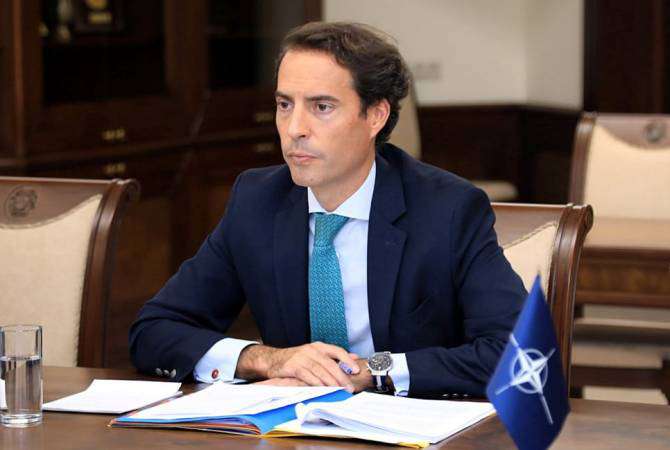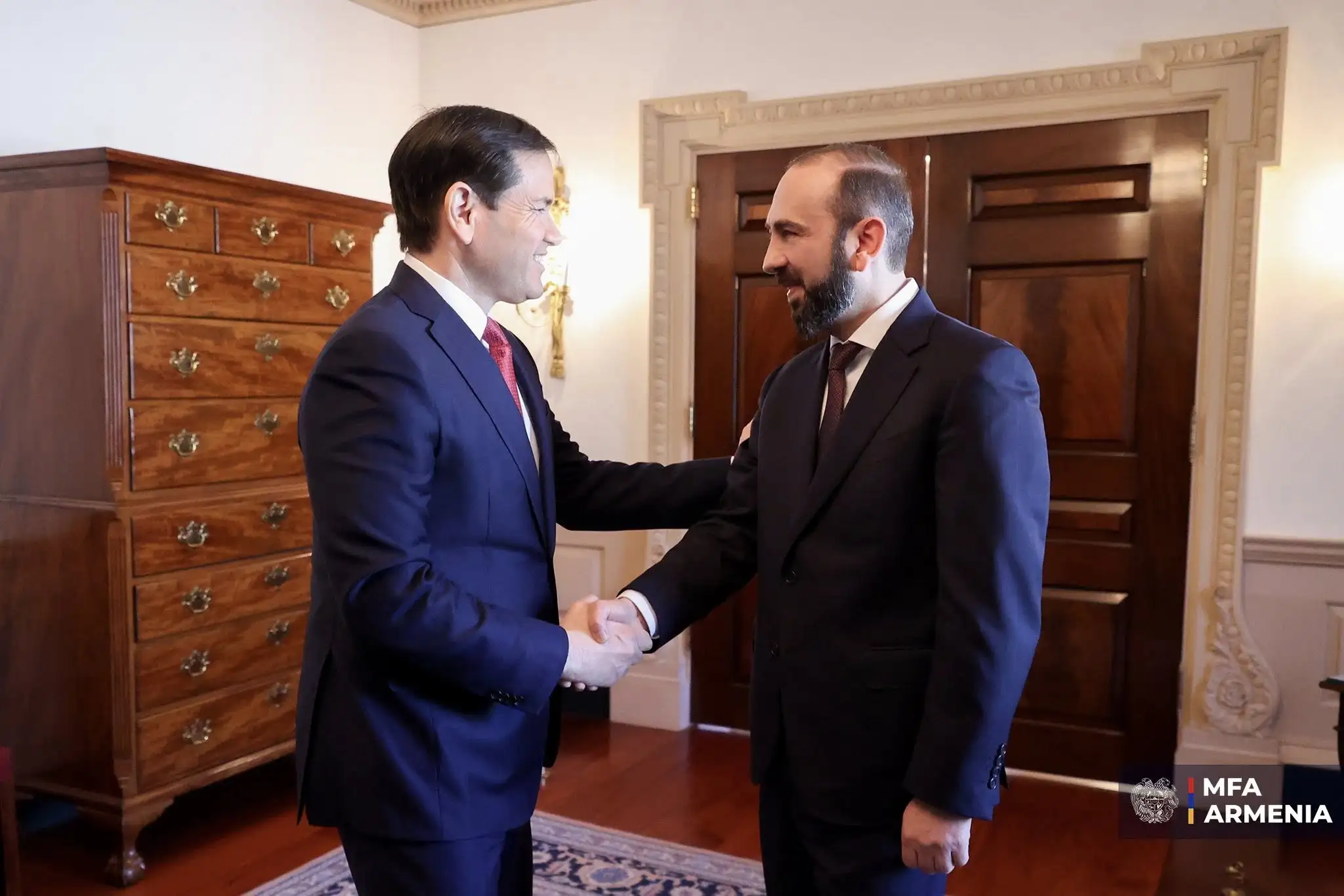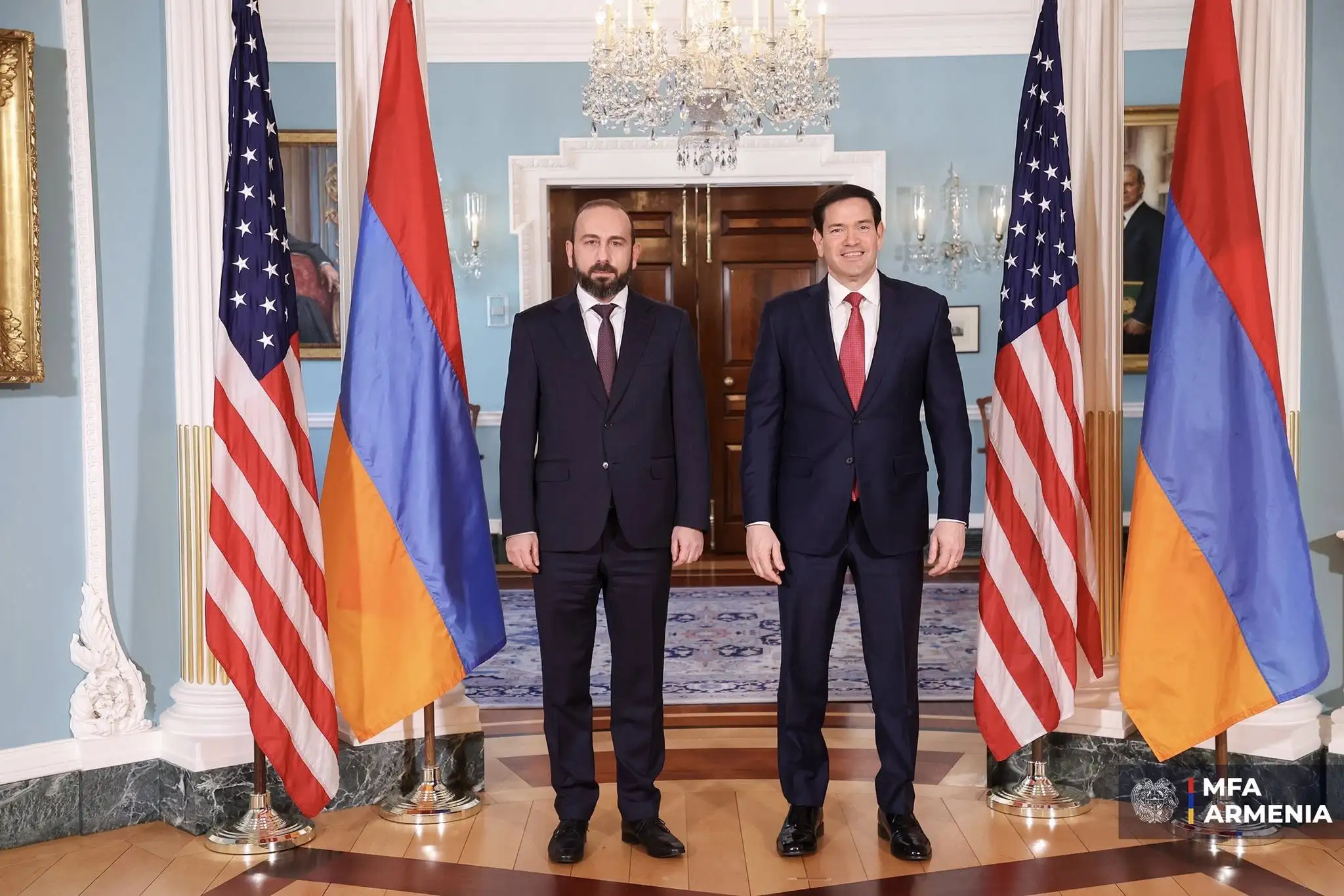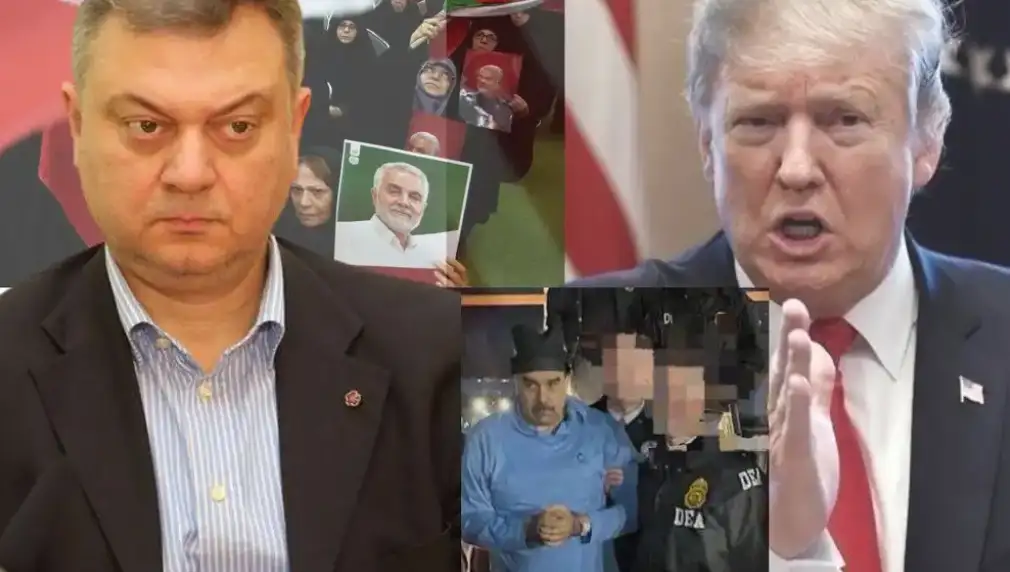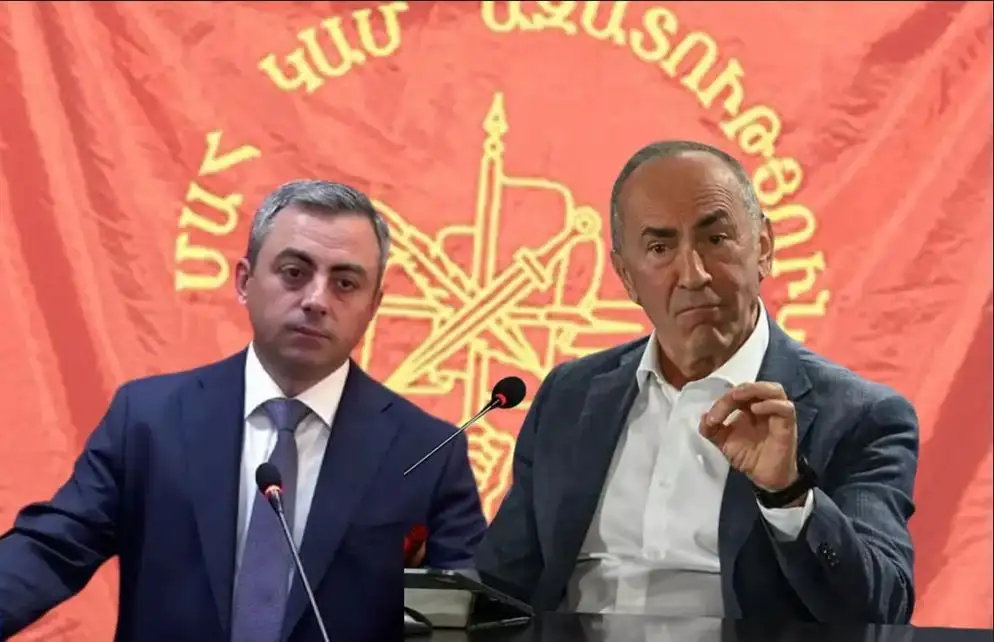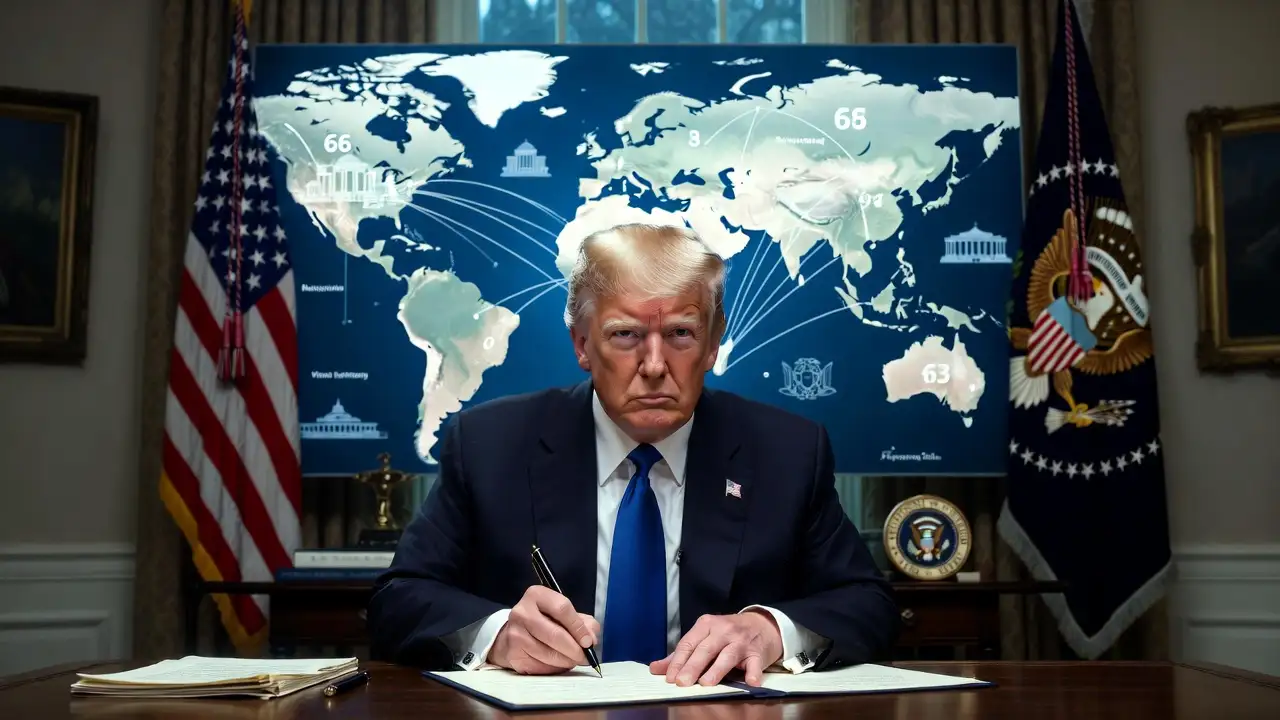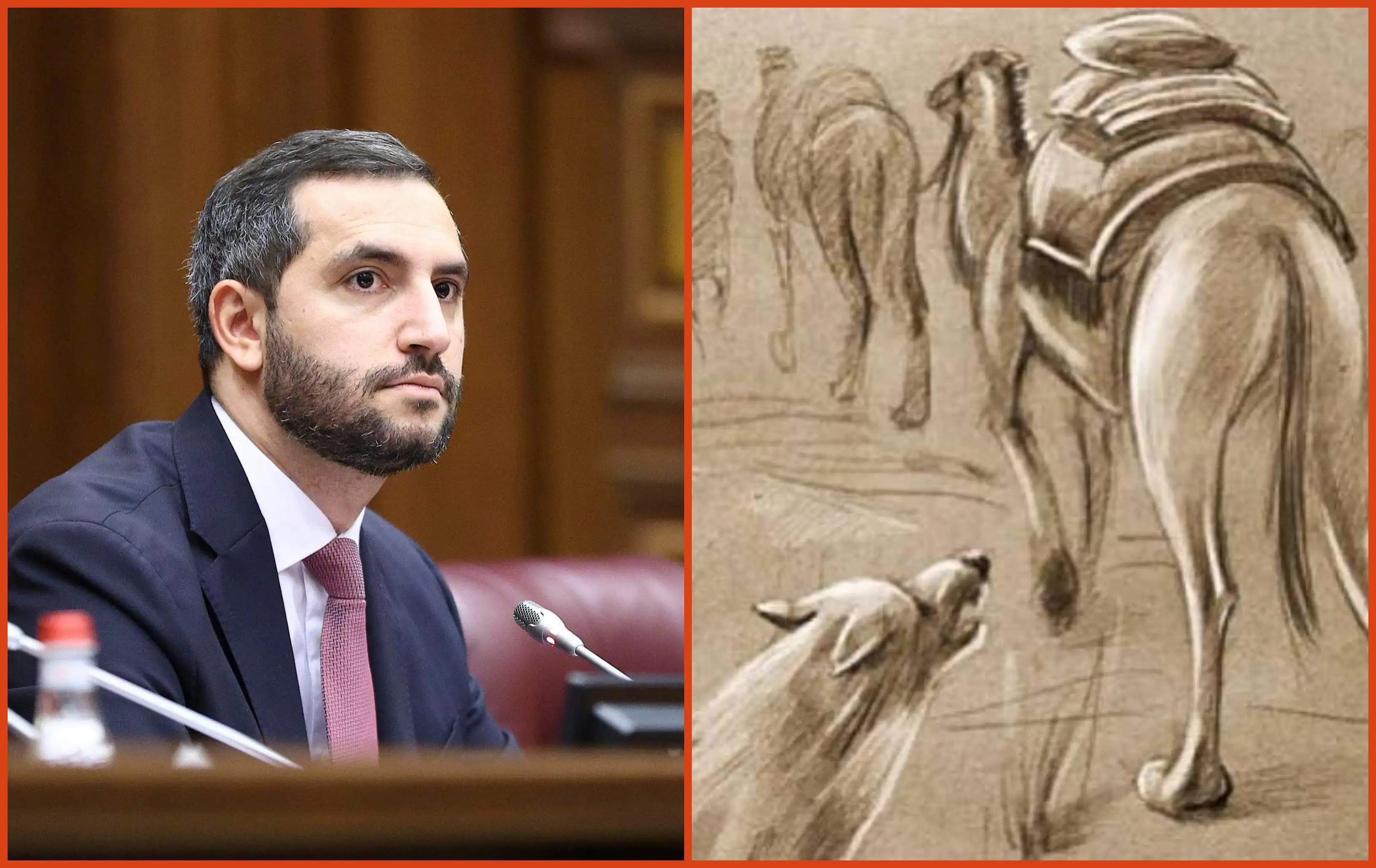NATO supports normalizing relations between Armenia and Azerbaijan and insists that the principles agreed upon between the parties should not be changed at this stage.
Javier Colomina, the special representative of NATO in the South Caucasus, said this in an interview given to the correspondent of "Armenpress" in Brussels.
Colomina noted that respect for the fundamental principle of territorial integrity and sovereignty of countries, which is the basis of normalizing relations between Armenia and Azerbaijan, is essential for them.
The representative of NATO in the South Caucasus also referred to Turkey's role in regulating Armenia-Azerbaijan relations, the prospects of Armenia-NATO cooperation, and other topics.
- You were recently in Armenia, where you had various meetings. What are the main issues discussed, what conclusions have you drawn, and what are your expectations for the future?
- Yes, I was recently in Armenia. I met with Prime Minister Nikol Pashinyan, Secretary of the Security Council Armen Grigoryan, Deputy Minister of Foreign Affairs Vahan Kostanyan, and Minister of Defense Suren Papikyan. I also had the opportunity to meet with students and junior diplomats; I gave a lecture. Overall, it was a good and significant visit. We are delighted with the bilateral relations we have with Armenia today. We are also very excited about Armenia's decisions in its foreign and defense policy and the shift they have decided to implement. It's a difficult decision to implement, and it will likely take a long time, but we certainly encourage our partners to come closer to us, and that's what Armenia is doing. We also talked extensively about the situation in the region and, in particular, the peace negotiations between Armenia and Azerbaijan. Our policy is straightforward. We support the normalization of relations between Armenia and Azerbaijan. We only take sides between our partners if there is a violation of the principles and core elements of the UN Charter, to which we are very attached. So, the message is unmistakable. We want the peace talks to resume as soon as possible. We know there are different negotiation formats: bilateral, US, and EU.
The final result, whether there is a stable peace, is the most important thing for us because it will be essential for the stability of the Caucasus.
- Of course, when we talk about stable and lasting peace, we should know that it is one of the essential goals for Armenia. But what developments can be expected from the Armenia-Azerbaijan settlement process, especially against the background of aggressive and destructive statements from Azerbaijan, which contain territorial aspirations towards Armenia?
- I heard a lot of concern from your authorities, especially regarding President Aliyev's statements. As I said, the normalization of relations leading to lasting peace is a fundamental element today, and we will fight for it; we will support the path that will lead to the signing of something similar between the two countries. We support the USA, and we support the European Union. I was there (in Armenia) with Toivo Klaar, the special representative of the European Union. So, I had the opportunity to talk with him for a long time. We also support the bilateral format of negotiations. Ultimately, it is up to the two nations to decide how they will move forward, so we will support whatever will eventually lead to peace. The principles put at the basis of the process—respect for sovereignty and territorial integrity—are fundamental. It is one of the principles that is very important for us. Of course, along with those principles, the demarcation of borders and interdependence, which are the basis of the process, should be part of the process unless the two sides decide to change those principles and have other principles. However, the agreed principles should remain the same at this stage. So, as I said, I heard a lot of concerns. The statements do not help the process move forward. We will continue to send the same message to our partners; they should resume negotiations as soon as possible. I want to add that my visit was meant to be regional. We had already worked with the two capitals to make it regional. Still, at the beginning of January, Azerbaijan decided to postpone the visit due to the presidential elections, so I could not convey the messages I would convey. One of those messages was clear: We expect you to resume peace talks soon.
- And what about Turkey? As you know, Armenia is also trying to regulate relations with Turkey. In your opinion, what is Turkey's position on normalizing ties with Armenia? Will Turkey go to an actual settlement of relations, or will the negotiations be formal again?
- Turkey is a vital ally for us. As you know, it is the only ally with borders in the region and, therefore, is a key player. We have had a very frank conversation with Turkey on every topic, and, of course, we also talk about intersections. Turkey knows that we support the normalization of relations between Armenia and Turkey. Turkey is ready to make progress in this matter. They may be waiting for some improvement in Armenian-Azerbaijani ties first. That could be one of the considerations, but they're interested in pushing the issue forward. As you know, I can't get into the foreign policy of our allies' domestic policy, but we've talked about this, and it will be a very positive development when that happens.
- You talked about the importance of sovereignty and territorial integrity. NATO member Turkey openly supported the large-scale war in the South Caucasus unleashed by Azerbaijan. The response of the structure was more relaxed and binding. Considering that Turkey supports Azerbaijan, do you think it is possible for Turkey to directly intervene in the event of a new aggression by Azerbaijan against Armenia, and in that case, what will NATO's reaction be, considering that this time it is "disputed territory"? There can be no justification because we are talking about an internationally recognized country.
- It isn't easy to prevent conversations, and, as I said, I cannot enter into the foreign policy decisions of my allies. We are very attached to those two principles: sovereignty and territorial integrity. We have always been clear that they are essential to us. Three years ago, the situation was different. As you said, there was a conflict regarding how you viewed that enclave. And although there was recognition of the territorial integrity and sovereignty of Azerbaijan, as I said, there was a contradiction. We are facing a different situation now, and the reaction will differ.
- What steps is NATO ready to take to support international efforts to establish peace and stability in the South Caucasus?
- Our policy is straightforward, and that policy frankly limits what we can do. But the policy is based on the fact that we do not take sides between partners at all. Not only between Armenia and Azerbaijan but in general, we have decided to implement this policy if there are no violations of the UN Charter or the principles stipulated in the Washington Treaty. Therefore, at this stage, I enjoyed the full support of the General Secretary, who said we should work, support, and have more of our presence. Since taking up this position (September 2021), I have visited the region seven times, more than in the previous ten years. So, in the context of the Caucasus, we have a more robust political presence. Three countries: Georgia, Armenia, and Azerbaijan, but specifically in the context of Armenia and Azerbaijan. And we have always been very clear about what we expect from our partners. We have expected a settlement of relations based on agreed principles, and some of these principles are those enshrined in the Washington Treaty and the UN Charter, such as sovereignty and territorial integrity. We will continue to defend the same line, and you will continue contributing to normalizing relations.
- Returning to what you said initially, you are delighted with your relations with Armenia. Are there plans to expand them? If so, in what direction?
- Yes, we are delighted. Armenia has decided to politically and practically activate cooperation with NATO in the last few years. In general terms, we are always ready to move at the pace our partners want to. So, we encourage everything that comes from Yerevan. Yerevan, for example, has decided to increase the number of its soldiers in the NATO peacekeeping force (KFOR) in Kosovo by more than 50, which is a sign of political involvement and commitment. We are working on a new Individually Tailored Partnership Program (ITPP) with ambitious goals. We are working on training opportunities. Two years ago, mainly after the war, cooperation was frozen, and this shift is significant in these steps. So now, what we have coming up is the establishment of an individually tailored partnership program. I have high hopes for this to happen in the coming weeks. But after the conversations I had in Yerevan, my impression is as follows: Armenians are ready to continue on that path and increase cooperation, and we will help Armenia to do so.
- NATO plans to conduct the most significant military exercises since the Cold War. Of course, we can guess who it is for, but what message is this?
- NATO has been apparent since the February 2022 war (Russian-Ukrainian). We increase our ability to defend and contain. The message was unmistakable. We will support Ukraine as much as possible, and, at the same time, we will not allow any violation of our territory. We have adopted many decisions, from the Madrid summit to the Vilnius summit. The decision to hold these extensive exercises (ed., we are talking about the Steadfast Defender exercises, which will be held in February and will involve about 90,000 troops) is very much about our ability to deter, and the message is clear. We want to contain, in particular, Russia, which we consider a threat. They made a strategic mistake by invading Ukraine. And they should understand that NATO will be ready to defend every inch of its territory.
- What is the role of Turkey in this message? Turkey is also trying to be a mediator or facilitator between Russia and Turkey, as the only NATO member country that can talk to both sides.
- Turkey has a particular regional and geographic position. Their foreign policy, which I'm not allowed to discuss, is more complicated than that of other allies, but they are committed to our defense and deterrence efforts. They are fully committed to our assessment of what our two threats are. We are talking about Russia and terrorism. They are as invested in our efforts as any other ally. They will be part of that extensive exercise, as they have been in all the big exercises we've had in the past.




